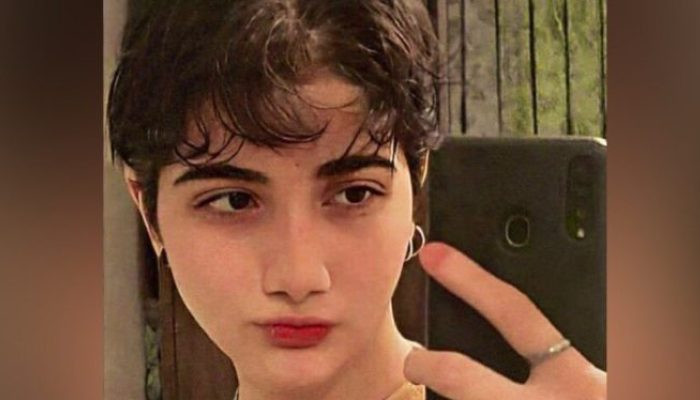Iranian girl ‘brain dead’ after morality police beating over hijab
 3414 Tuesday, 24 October, 2023, 21:36 A 16-year-old Iranian schoolgirl who was allegedly beaten by morality police for not wearing a hijab is now “brain dead”, state media reported on Sunday. Armita Geravand fell into a coma earlier this month after a “severe physical assault” by female morality police officers on the Tehran metro, according to Hengaw, a human rights group. There have been concerns that Ms Geravand might face the same fate as Mahsa Amini, whose death in the custody of morality police last year sparked months of nationwide anti-government protests. Human rights groups such as Hengaw were the first to make the 16-year-old’s hospitalisation public, publishing photos of her on social media that showed her unconscious with a respiratory tube and bandage over her head, visibly on life support. Iran has denied that Ms Geravand was hurt after a confrontation on Oct 1 with officers enforcing the country’s mandatory Islamic dress code. The latest reports on her condition came as an Iranian Revolutionary Court handed out long prison sentences to two women journalists over their coverage of the death of Ms Amini. Iran’s state news agency IRNA said Niloofar Hamedi and Elaheh Mohammadi were sentenced to 13 and 12 years in prison respectively on charges, including collaboration with the US government and acting against national security. Lawyers for the two journalists have rejected the charges. “They received seven years and six years each respectively for collaborating with the hostile US government. Then each five years in prison for acting against the national security and each one year in prison for propaganda against the system,” IRNA reported. Ms Hamedi was detained after she took a picture of Ms Amini’s parents hugging each other in a Tehran hospital where their daughter was lying in a coma. Ms Mohammadi was arrested after she covered Ms Amini’s funeral in her Kurdish hometown Saqez, where the protests began. IRNA said the “issued verdicts” were subject to appeal. If confirmed, the time the women have already spent at the Evin jail, where most political prisoners are held, would be deducted from the sentences, according to the judiciary’s Mizan news agency. A statement released by Iran’s intelligence ministry in October last year accused Ms Mohammadi and Ms Hamedi of being agents for the United States Central Intelligence Agency. “There is documented evidence of Hamedi and Mohammadi’s intentional connections with certain entities and individuals affiliated with the US government,” Mizan reported. The protests that erupted over the death of Amini in September last year posed one of the boldest challenges to Iran’s theocracy since the 1979 Islamic revolution, quickly escalating into calls for the overthrow of the country’s clerical rulers, accused by many young protesters of being corrupt, repressive and out of touch. Iran’s government blamed the protests on a foreign conspiracy, without providing evidence. The country’s rulers have imposed restrictions on women’s dress since the deposition of the secular and Western-backed Shah in a popular revolution more than four decades ago. Women are required by law to cover their hair and wear long, loose-fitting clothes, with violators facing public rebuke, fines or arrest. However, defying the strict Islamic dress code, more women have been appearing unveiled in public places such as malls, restaurants and shops across the country since Ms Amini’s death. |

Strikes on 3 more alleged drug boats kill 11 people, U.S. military says
72517.02.2026, 23:18
Firefighter critically injured in 'catastrophic' explosion at a New York church
74417.02.2026, 22:56
3 people, including suspect, killed in shooting at Rhode Island high school hockey game (video)
72917.02.2026, 09:30
28 schools in Ahmedabad and Vadodara receive bomb threats; searches on in Gujarat
100016.02.2026, 17:52
At least 10 killed in mass shooting in Tumbler Ridge, B.C. (video)
216911.02.2026, 09:24
Small plane crashes into vehicles after emergency landing in Georgia State (video)
245410.02.2026, 10:12
Fifty-three migrants dead or missing after boat capsizes off Libya, IOM says
237109.02.2026, 16:32
Lebanon's Tripoli building collapse kills 14 (video)
224709.02.2026, 13:37
